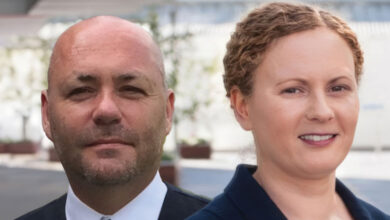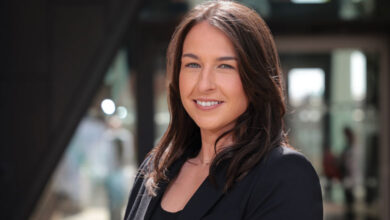Seeking asylum
 Life for Northern Ireland’s asylum seekers is characterised by a long wait on a low income. Three people who have experienced the system talk to Peter Cheney and share their hopes for change.
Life for Northern Ireland’s asylum seekers is characterised by a long wait on a low income. Three people who have experienced the system talk to Peter Cheney and share their hopes for change.
“We didn’t come to this country to get a better life. We came to this country to save our lives.” The asylum seeker speaking those words came from a comfortable background in a Middle Eastern country but he was forced to flee with his family after they converted to Christianity. agendaNi has interviewed him, another asylum seeker and a refugee, to gather their views on improving the system.
An asylum seeker is someone who claims to have left their home country – due to persecution – and is waiting for a formal decision on their claim. If the claim is accepted, he or she will officially be considered a refugee. Around 500 asylum seekers live in Northern Ireland, the majority living in South Belfast.
Some media outlets portray the number of asylum seekers as overwhelming.
As of last September, though, the total number was 27,815 people across the UK – out of a population of 62 million. Asylum applications have been rising since 2010 as conflicts have broken out and increased in intensity across the Middle East and Africa. The relatively large number of Chinese asylum seekers (see chart) may include people trafficked by criminal gangs and also those fleeing high levels of persecution and discrimination in the country.
Asylum seekers are allocated a rent-free house but cannot choose where to live. Free schooling and healthcare are also provided. An allowance (asylum support) is paid to help them meet other living costs – it ranges from £36.62 per week for a single adult to £72.52 for a married couple. They are generally not allowed to work but they can apply for jobs on the UK’s shortage occupation list if they have been waiting for a year or more; the list is mainly limited to health-related or engineering posts. The Home Office maintains that allowing asylum seekers a general right to work would send out the wrong message to potential applicants and could encourage spurious claims.
The man quoted above arrived in 2013 but is still waiting for an interview with the Home Office where he will be asked to explain why he was persecuted at home. He is also waiting for a decision on whether or not he can work. While he’s satisfied with his house, he knows that others live in damp, unhygienic conditions: “Heating is very bad and when you have a little child, there’s not a lot of heating money.” Another man, from the same country, left after political persecution. He has been interviewed but is still waiting on a decision after four years in the UK whereas others’ cases are cleared up in just 10 days.
For him, the asylum system is like playing the lottery. “It’s like I’m buying the lotto and one night I win £1 million, and the other person buys 500 times and does not win anything. The system is exactly like that. I think they have to make sure that a family waiting for one year must have priority over the person who arrives today.” He finds that asylum seekers who have been workless for several years have lost the motivation to work when they get their refugee status.
The third interviewee, from Sri Lanka, applied for asylum in 2012 after being imprisoned for his political beliefs and was accepted as a refugee in December. Looking back over the process, he says that staff were “too rude” in their questioning and he would prefer that all asylum seekers got a decision within four to six weeks.
Once an application is successful, government support is ended after
28 days. One of his major frustrations is the lack of co-ordination between different agencies. The previous day, he had been asked to give all his details at the local job centre but he wants staff to be able to call up the Home Office and get his full file: “They have my whole story in the system.”
He and his family were homeless for two days and a friend of theirs was homeless for two months. As for their future hopes, the first man’s priority is to get an interview. The second man comments: “If the people who decide our cases can for one second or one minute put themselves in our shoes and looked at our situation from their view, in that case, they could get better at deciding about us.”
The Sri Lankan refugee now has permission to stay for five years. He wants to get a good job as a chef, build stability for his family, and apply for a British citizenship in the longer term. “My focus after I settle is 100 per cent on this country,” he affirms.
“I’m walking the rope. I don’t know when it will break. I need to always think [how] to make my walk stronger.” The interview took place at the Presbyterian Church’s International Meeting Point on the Lisburn Road (pictured opposite) which provides a free lunch for 40-90 people per day and English language classes. “It’s a safe place for people from different nations to meet,” says manager Keith Preston. “As a team, we serve out of compassion and as agents of welcome to those who, for whatever reason, find themselves in this part of the city and far away from home.”
Waiting time pledge
Fifty-seven per cent of asylum seekers are waiting longer than the official six-month processing target. The Home Office is aiming to make initial decisions on all straightforward asylum applications made before 1 April 2014 by 31 March 2015 and ensure that all newer claims receive a decision within six months of submission.
Tabloid coverage of asylum tends to focus on those who are refused refugee status – around 5,000 people across the UK. The Home Office would prefer to deport them as they have no legal right to remain but allows some to stay as it is not yet safe for them to return home. In these cases, asylum support payments continue to stop failed asylum seekers and their families from becoming destitute.
No integration strategy
Northern Ireland is the only part of the UK or Ireland without a refugee integration strategy. The Northern Ireland Strategic Migration Partnership – an official advisory group – drew up a draft strategy in 2013 which emphasised the need for consistent support, especially in the 28-day transition period.
This is available at www.migrationni.org and it’s understood that OFMDFM is considering whether this should be part of the new racial equality strategy or published separately. No timescale for either strategy has been set out.





